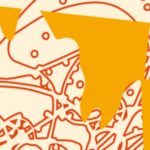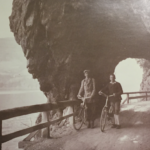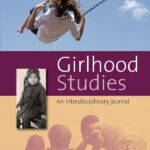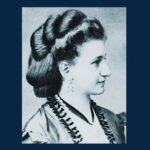Flavia Guerrini, Univ. Innsbruck and Tatjana Takševa, Saint Mary’s Univ., Kanada
Time: 22.05.2024
Venue: Univ. Innsbruck
Proposals by: 19.04.2024
In recent years, research on children of war in different geo-political and historical contexts has produced rich and empirically saturated descriptions of the experiences of children born to local mothers and enemy soldiers, occupation soldiers, members of rebel groups as well as of UN peacekeeping forces. They show that many were and are confronted with similar challenges: for example, various forms of exclusion, a difficult communication regarding one’s own origins as the child of an enemy or foreign soldier often characterized by ignorance, silence or lies, or questions of identity and belonging. Regardless of these similarities across geographical distances and historical periods these studies are faced with the challenge to specify the relation of the individual situations and the social structures with the risk of remaining “ahistorical” if they don’t sufficiently consider the changing historical circumstances (Kössler, 2019).
This research workshop will discuss ways to contextualize the experiences of children born of war in processes of state and nation building. Often, children grow up during conflicts or in times of post-war transition when such processes of nation building and forming of national identities are especially prevalent. For example, national or nationalistic, ethnic, religious and racist discourses, ideologies, policies and practices provide notions of who are the desired members of the collective, how such collectives may be joined and what happens to those considered as „the others“. As Nira Yuval-Davis pointed out, these are deeply gendered processes in many ways (1997 and 2011) and we must assume that they impact the experiences of children born of war and their mothers and care-givers. Several studies point out that it might be especially challenging for children born of war to develop a sense of belonging (e.g. Mitreuter et al. 2022) and point out the necessity to discuss this in relation to politics of belonging (e.g. Guerrini 2023). Other studies have shown that specific narratives of the nation and national identity might render the experiences of children born of war invisible (e.g. Steward 2020, Denov et al. 2020). At the same time, recent research has also highlighted how specific groups of children born of conflict-related sexual violence become political agents of change whose activism contributes to nation building positively, and in the context of reconciliation (e.g. Takševa, 2023; 2019). Read more … (PDF)

 Ringvorlesung des Referats Genderforschung an der Univ. Wien; Organisation: Tomi Adeaga
Ringvorlesung des Referats Genderforschung an der Univ. Wien; Organisation: Tomi Adeaga  VelodromLinz
VelodromLinz  Girlhood Studies; Doris Kakuru and Grace B. Kyomuhendo
Girlhood Studies; Doris Kakuru and Grace B. Kyomuhendo  KADOC. Documentatie- en Onderzoekscentrum voor Religie, Cultuur en Samenleving, Leuven
KADOC. Documentatie- en Onderzoekscentrum voor Religie, Cultuur en Samenleving, Leuven  Bettina Bannasch, Neuere deutsche Literaturwissenschaft, Univ. Augsburg und Markéta Balcarovà, Univ. Pilsen
Bettina Bannasch, Neuere deutsche Literaturwissenschaft, Univ. Augsburg und Markéta Balcarovà, Univ. Pilsen